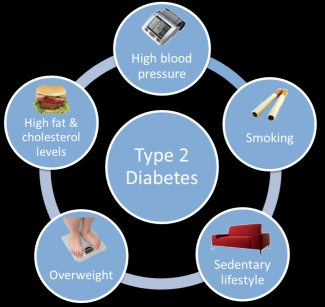
The causes of diabetes differ depending on what type you have and whether you have type 1, type 2, or a more rare condition caused by gestational diabetes, also known as pre-pregnancy diabetes. Type 1 is characterized by destruction of the insulin-producing cells in the pancreas, making you have little or no insulin.
On the other hand, type 2 diabetes is caused by a hormone called insulin
Insulin is produced by cells in the body and regulates the amount of glucose (sugar) consumed. When insulin production is out of balance, sugar levels rise and blood glucose levels fall.
If you have type 1 diabetes, your blood sugar levels are much lower than normal, which can cause you to urinate more often, especially at night. You will also be thirsty and often very hungry during the day, which can lead to serious complications.
On the other hand, type 2 diabetes occurs when the pancreas produces abnormal amounts of insulin. This is very different from the first, as your body does not have insulin-producing cells in your intestines. Instead, yours the pancreas makes too much insulin, which causes your blood sugar to rise above normal and can wreak havoc on your body. When the damage becomes severe and there is no more insulin in your body to help you regulate your glucose levels, your blood sugar has dropped so low that you pass out.
If you have type 2 diabetes, you need to get it cured as soon as possible. Without proper treatment, it can turn into a chronic condition that can lead to heart attack or stroke and other health problems.
Other causes of diabetes type one include genetics, being overweight, poor diet and lack of exercise. Genetics is usually determined through testing blood samples that indicate whether the person carries certain gene markers that increase the risk for diabetes. Lifestyle-related factors include smoking cigarettes and drinking alcohol, which can significantly increase the chances of developing diabetes.
If you've been diagnosed with diabetes type one, it's very important to educate yourself about the disease and the treatments available. The earlier you catch it, the easier it's to treat it and the better chance that you will prevent major complications.
Type one and type two diabetes have a variety of treatments. One popular treatment for the condition is the insulin shots. Although this type of treatment doesn't seem to be a cure, it can dramatically improve your quality of life and make the symptoms less bothersome. Diabetes tests are also given to determine if the condition is under control and the right treatment can be administered for you.
Diabetes type one is usually managed by changing your lifestyle. If you eat foods that are high in carbohydrates, you should limit them. These include sugars, pasta, breads and any food with refined flour.
It's also advisable to add more fruits, vegetables and healthy fats to your diet because they contain anti-oxidants that fight free radicals and slow down the progress of diabetes. Avoiding the use of tobacco and drinking plenty of water can also help regulate your glucose levels. and keep your blood pressure under control.
Since many other people are diagnosed with diabetes types one and two, there are many medications that can be prescribed to help. manage the symptoms and keep blood glucose levels under control. If you are obese, the medication can help you lose weight and control the effects of diabetes on your body. Blood pressure medications are available if you suffer from high blood pressure or if you have a family history of the condition.
The best way to prevent diabetes complications is to always maintain proper treatment and get regular checkups. Remember that it's best to speak with a doctor or health professional if you experience any of the warning signs of the condition to avoid complications.